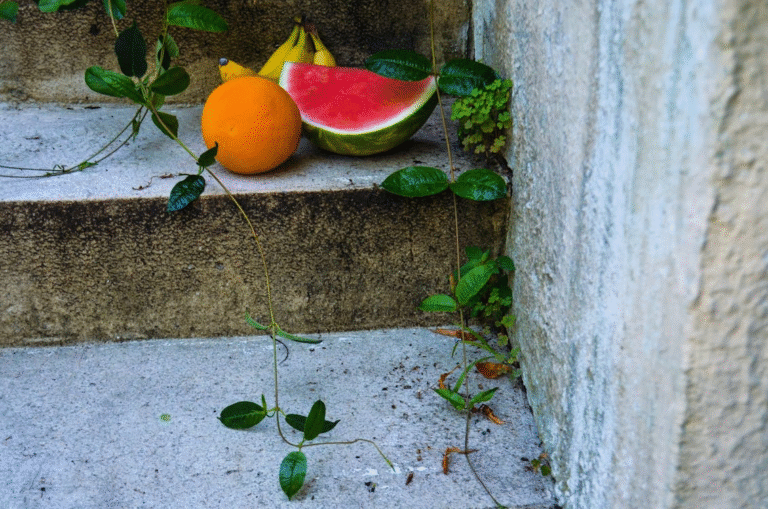Soft Drink Consumption Linked to Depression — New Study Reveals Gut Bacteria Role
A new German study unveils a compelling connection between regular soft drink intake and major depression, with a surprising twist: the link appears especially strong in women, and a specific gut bacterium may mediate part of it. Below, you’ll find all the key details of this research, along with extra context on gut microbes, mood disorders, and what this could mean for everyday life.
What the Study Was—and What It Found
Study setup and participants
Researchers drew on data from the Marburg–Münster Affective Cohort, a German population-based sample. They enrolled 932 adults aged 18–65, comprising:
- 405 individuals clinically diagnosed with major depressive disorder (MDD)
- 527 healthy control participants (no diagnosis of depression)
These data were collected between 2014 and 2018, and later analyzed in 2024.
Each person’s soft drink consumption, body mass index (BMI), use of antidepressants, and gut microbiome profile (from stool samples) were recorded. The study used multivariable regression, ANOVA models, and mediation analyses to examine how soft drink intake, depression, and gut bacteria might interrelate.
Main associations
- Across the full sample, a higher intake of soft drinks was significantly associated with increased odds of having MDD (Odds Ratio [OR] = 1.081 per unit increase in soft drink intake; 95% CI: 1.008–1.159; p = 0.03).
- More soft drink consumption was also tied to *greater depression severity among those diagnosed.
- These associations remained even after adjusting for BMI and antidepressant use.
Sex differences: stronger in women
- Among women, the association was notably larger: each unit increase in soft drink consumption corresponded to an OR of 1.167 for diagnosing depression (95% CI: 1.054–1.292; p = 0.003).
- No statistically significant link was observed in men.
- In women participants, a higher soft drink intake correlated with a greater abundance of the gut bacterium Eggerthella.
- Mediation analysis estimated that Eggerthella explained about 3.82% of the soft drink–diagnosis link and 5.00% of the soft drink–severity link in women.
Gut microbiome patterns
- Women with depression had lower overall microbial diversity and less evenness (i.e. a few bacterial species dominated) relative to women without depression.
- This pattern was not evident in men.
- Among the bacteria examined, Eggerthella stood out. Another genus, Hungatella, did not emerge as a significant mediator in this data.
- The authors emphasize that although the contribution of Eggerthella is statistically small, it suggests a biological pathway linking sugary beverage consumption, gut health, and mental well-being.
Interpretation & caveats
- The authors caution that this is an observational, cross-sectional study—so causation cannot be firmly established. It’s possible that depression leads people to drink more soft drinks, or that some other factor underlies both.
- The effect sizes are modest. The increase in risk per unit of soft drink intake is small, though the investigators point out that even small effects can matter when many people regularly consume sugary drinks.
- The female-specific pattern remains unexplained: hormonal, behavioral, metabolic, or other differences may play a role.
- The mediation share via Eggerthella is limited. Much of the soft drink–depression link is left unexplained by this study.
- The authors call for prospective studies and randomized trials, plus experiments targeting the gut microbiome, to test whether reducing soft drink intake or modifying microbes can reduce depression risk.
Why This Matters
- Public health angle: Soft drinks already carry risks for obesity, diabetes, cardiovascular disease, and cancer. This adds a possible link to mental health.
- Gut–brain axis relevance: It supports mounting evidence that our gut microbes are connected to mood, anxiety, and brain health.
- Prevention opportunity: Unlike many risk factors, sugar‐sweetened beverages are modifiable. Reducing intake is something people can act on (with proper behavioral supports).
- Precision interventions: If a bacterium like Eggerthella contributes, then microbiome-based therapies (e.g. prebiotics, probiotics, dietary adjustments) might become part of mental health strategies.
A Primer on Gut Microbiome & Mental Health
Since the study invokes gut microbes, here’s some background to give you more context.
Gut microbiome basics
- The gut microbiome consists of trillions of microorganisms (bacteria, archaea, fungi) residing mainly in the colon.
- Many of these microbes ferment undigested dietary fibers into short-chain fatty acids (SCFAs) such as butyrate, acetate, and propionate, which maintain gut barrier integrity, reduce inflammation, and support immune balance.
- Diet is a major driver of microbiome structure. Diets high in fat, sugar, and processed foods often reduce microbial diversity and increase pro-inflammatory taxa.
Gut–brain communication
- The gut–brain axis is the bidirectional network linking the gastrointestinal system and central nervous system. Communication occurs via neural (vagus nerve), immune, metabolic, and hormonal pathways.
- Microbial metabolites (like SCFAs), microbial modulation of tryptophan metabolism (a serotonin precursor), and immune activation are proposed routes through which gut bacteria influence mood and cognition.
- Animal studies have shown that fecal microbiota transplantation (FMT) from depressed humans into rodents can induce depressive‐like behaviors. Some bacterial taxa, e.g. Eggerthella, Atopobium, Bifidobacterium, have been found in different abundances in depressed vs healthy people.
Depression’s complexity
- Major depressive disorder is multifactorial: genetics, environment, stress, inflammation, neurochemical imbalance, hormonal changes, and lifestyle all interplay.
- The microbiome is a piece of the puzzle, not a sole cause — but it represents a modifiable interface.
- Clinical trials so far of probiotics or prebiotics in depression show modest positive effects, but results are far from definitive.
What You Should Know (and What You Shouldn’t Overclaim)
- This new German study is strong in sample size and clinical diagnosis (not just self-reported mood), adding credibility.
- But because it’s observational, you can’t claim that soft drinks cause depression. The possibility of reverse causation (depressed individuals drink more sodas) or common upstream factors remains.
- The role of Eggerthella is intriguing but relatively small in the mediation models; most of the effect is unexplained.
- The female-only effect is interesting but is not yet understood — further research should examine biological sex differences.
- Also, the study did not differentiate between artificially sweetened beverages and sugar-sweetened sodas, which might matter.
- This research was done in Germany; findings may not fully generalize across cultures, diets, ages, and ethnicities.
What You Can Do (If You’re Curious or Concerned)
- Monitor your soft drink intake. Reducing sugary beverage consumption is low risk and already beneficial for many health outcomes.
- Support gut health with diet. Increase fiber, whole grains, legumes, fruits, vegetables, and fermented foods to nourish beneficial microbes.
- Stay tuned to new research. Longitudinal cohorts and randomized controlled trials will begin to untangle cause vs effect.
- Be cautious with claims. It’s exciting, but until interventions are tested, use this study as a “piece of evidence,” not proof.
Final Thought
In short: this study offers detailed, clinically grounded evidence linking soft drink consumption to depression, mostly in women, and points to Eggerthella as a small mediator via the gut microbiome. It doesn’t prove causality, but it strengthens the idea that what we swallow affects both our bodies and our minds.
If you want, I can help you craft a shorter blog version or do a deep dive into other microbiome-depression research.
Reference: Thanarajah SE, Ribeiro AH, Lee J, et al. Soft Drink Consumption and Depression Mediated by Gut Microbiome Alterations. JAMA Psychiatry. 2025; published online September 24. doi:10.1001/jamapsychiatry.2025.2579
Link to paper






